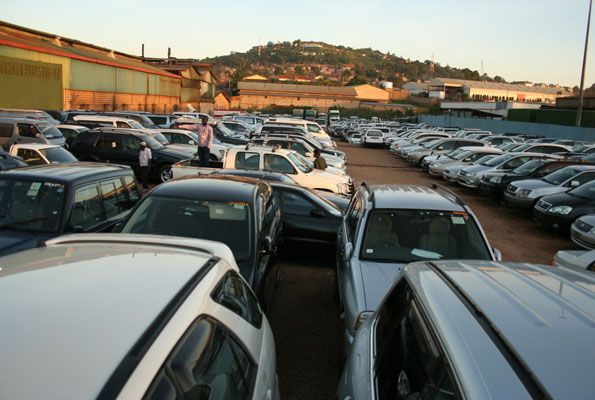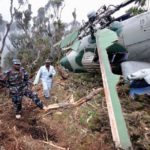As government plans to ban importation of vehicles older than 15 years into the country, The Uganda National Bureau of Standards (UNBS) has come up to alert dealers of used motor vehicles that it will commence inspecting that category of vehicles shipped after June 1, 2018.
“All used motor vehicles shipped after the 1/06/2018 will be inspected for roadworthiness here in the country … by UNBS inspectors prior to their release from the Customs controlled areas until further notice. Dr. Ben Manyindo, the UNBS Executive Director says in the latest public notice.
He says the decision is in line with his agency’s ‘Inspection and Clearance of Imports Regulations 2018.’
But Eagle Online understands the contracts of private companies which have been doing the inspection of vehicles have expired, the reason UNBS will do the work itself. The companies include; East Africa Automobile (EAA), Jabal Kilimanjaro Auto Elect. Mech or Japan Export Vehicle Inspection Centre (JEVIC).
However, the UNBS boss says his agency will still recognise valid Certificates of Roadworthiness issued before June 1, 2018.
According to Dr. Manyindo says used motor vehicles imported into the country are assessed against the US 845:2008 – Road vehicles — Code of practice which is a compulsory Uganda Standard.
Dealers have been advised to obtain further details from UNBS Head Offices, UNBS staff at customs entry points or from its website.
The companies have been inspecting the vehicles at a fee of USD 140, US $200, US $125, USD220 and US $200 for vehicles originating from Japan, Singapore, United Arab Emirates, South Africa and United Kingdom, respectively.
Members of Parliament yesterday amended the Traffic and Road Safety law, banning the importation of vehicles older than 15 years and maintaining the 50 per cent environmental levy on imported vehicles eight years older.
The government maintains that older vehicles are prone to mechanical malfunction and that limiting their importation into Uganda would reduce on road carnage and environmental pollution.
A United Nations Road Safety Performance Review of Uganda estimated Shs4.4 trillion as the overall annual cost of road accidents in the country. The UN report is supported that of Parliament’s Finance Committee which says that importation of older vehicles into the country has exposed it to high levels of pollution and that disposing of junk cars is burdensome.
Despite government’s safety and environmental concerns, car dealers say the move to ban the importation of vehicles above 15 years will cost jobs to Ugandans but also increase the price of vehicles.
MPs Allan Ssewanyana (Makindye West) and Silas Aogon (Kumi Municipality) concurred with the used car dealers that the law favours the rich and discriminates the Ugandan poor who don’t have money to buy expensive cars.
Exemptions
The vehicles exempted from the impending ban are special purpose motor vehicles including: breakdown lorries, crane lorries, fire fighting vehicles, concrete mixer lorries, road sweeper lorries, spraying lorries, mobile workshops, forklifts, mobile drilling rigs and mobile radiological units.
Other vehicles exempted from the ban are work trucks, tanks and other armoured fighting vehicles, cesspool emptiers, water boswer, bullion spreaders, bitumen spreaders, bucket trucks, aircraft refuellers, spraying trucks, workshop vans and mobile banks.
Agricultural or forestry tractors, earth moving motor vehicles, dumping machines and road rollers are also not affected by the Bill.
Motor vehicles which are in transit before the commencement of this Act and which arrive in Uganda by September 30, 2018 will also be exempted from the ban.
Regionally, Kenya controls importation of used cars to eight years or older whereas Rwanda, Burundi, Tanzania and South Sudan have no limits as yet.
The East African community partner states have no agreement on restriction as regards importation of used vehicles though in 2009 it was decided by the bloc’s council of ministers that no vehicle made before 2009 would be imported into the region.







